AI Experiments: Side Projects I Built for Experience (and Fun!)
Project 1: SimpleFunctions.AI
When I realized LLMs could do powerful things that previously required a large team of workers or specialists building algorithms, I was hype!
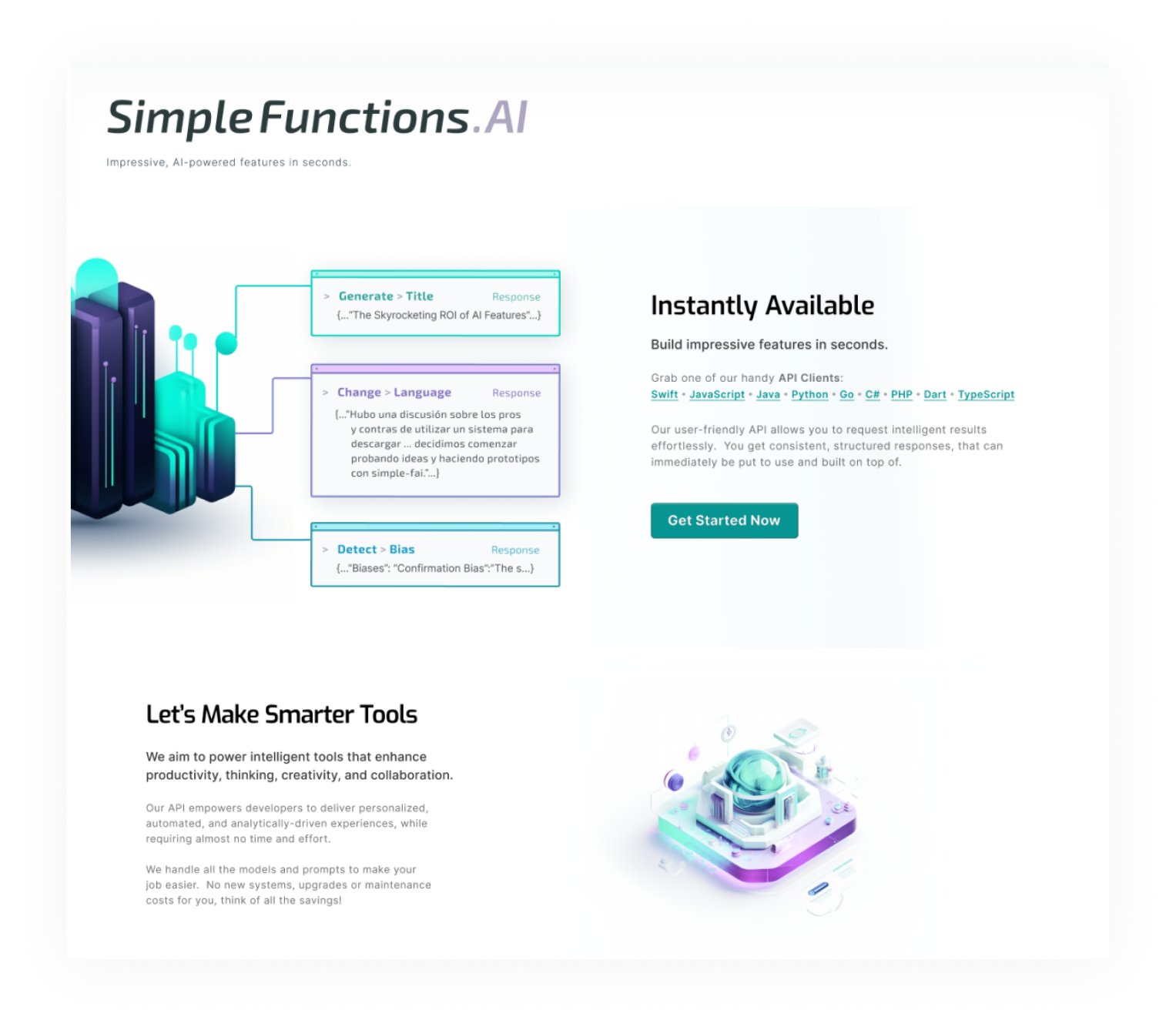
These new LLM capabilities gave me an idea.
What if you could make it easy for developers to implement smart features (like auto-summaries, extracted next steps, etc.) without having to learn any prompt engineering or understand LLMs at all?
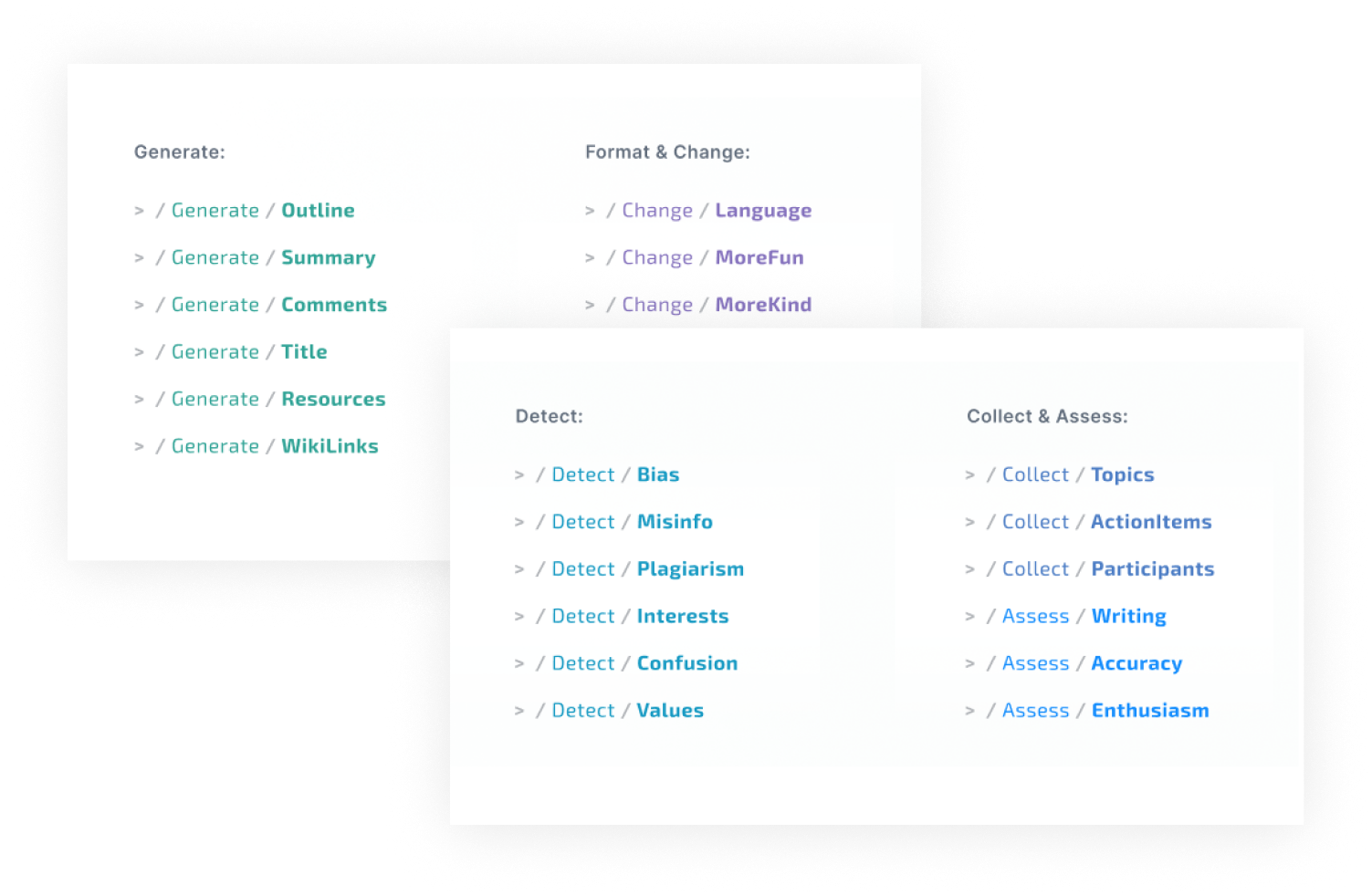
What if some simple yet powerful features could be called like a simple function, and auto-formatted and parsed consistently every time?
I designed this dummy marketing site to test to see if there would be interest in the market for it.
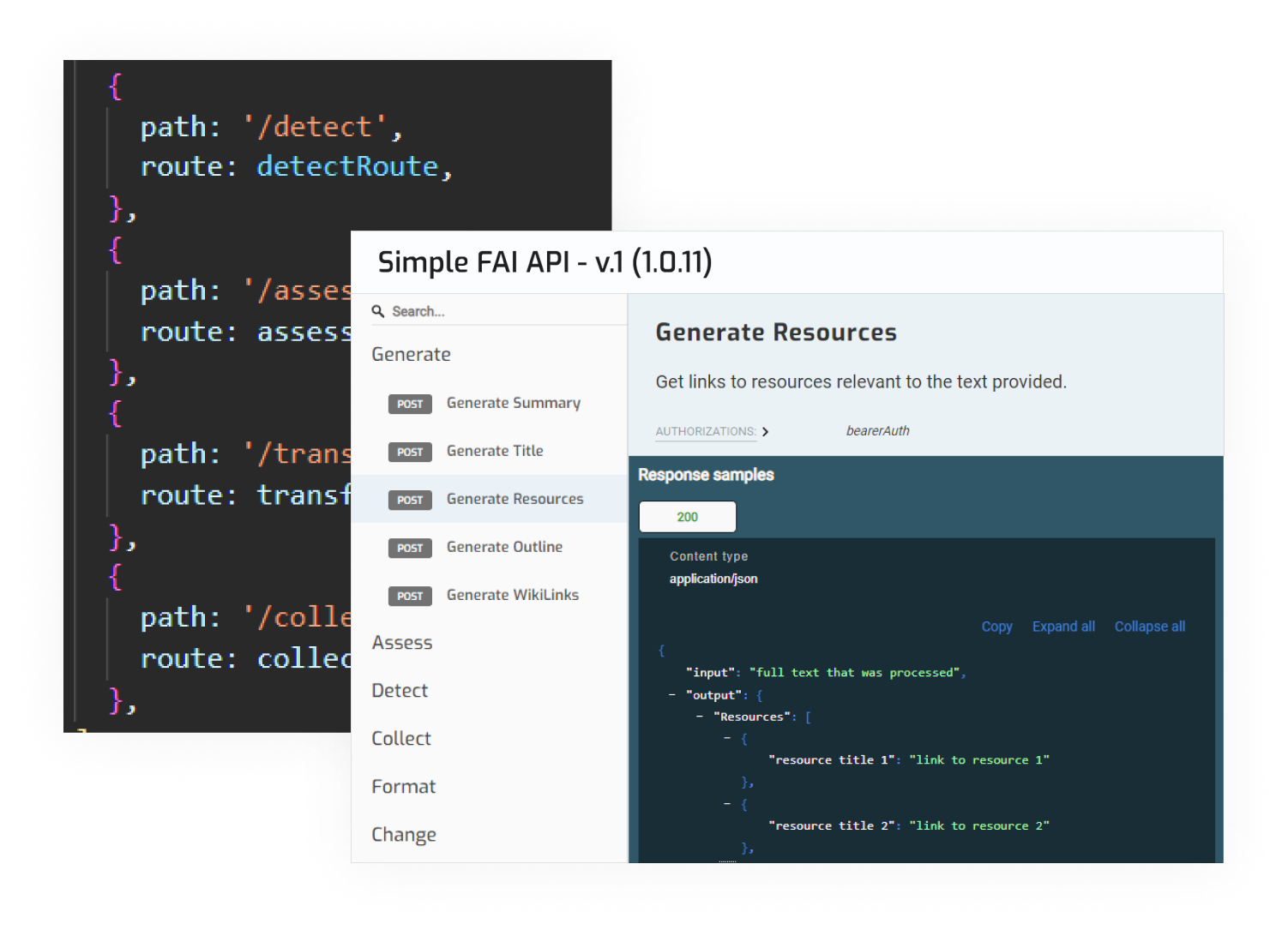
As I started getting feedback on my first rev of a marketing site for this idea, I also started toying with some basic open source API code to learn what it would take to build.
Through tweaking and hacking with the help of AI prompts, I quickly built the entire Alpha product independently, in just a few weeks of my free time.
I ended up publishing a v1 with Stripe to process metered billing.
I learned that no matter how simple I made the API, there is always significant work for developers to learn how to implement it.
As so many people started feeling the pressure to learn LLM tech themselves, abstracting it away became less compelling.
Turns out you need extensive security and support and pre-made clients available for various platforms to drive adoption, due to the time investment needed to fully test it out with authentication, billing, etc.
I later noticed Retool launched a service that targets a similar need, so there does seem to be something here. To be continued...
Project 2: DecideThings.com
I noticed the AI-Powered tools I liked were doing something powerful. They abstracted some “prompt details” into simple UI choices.
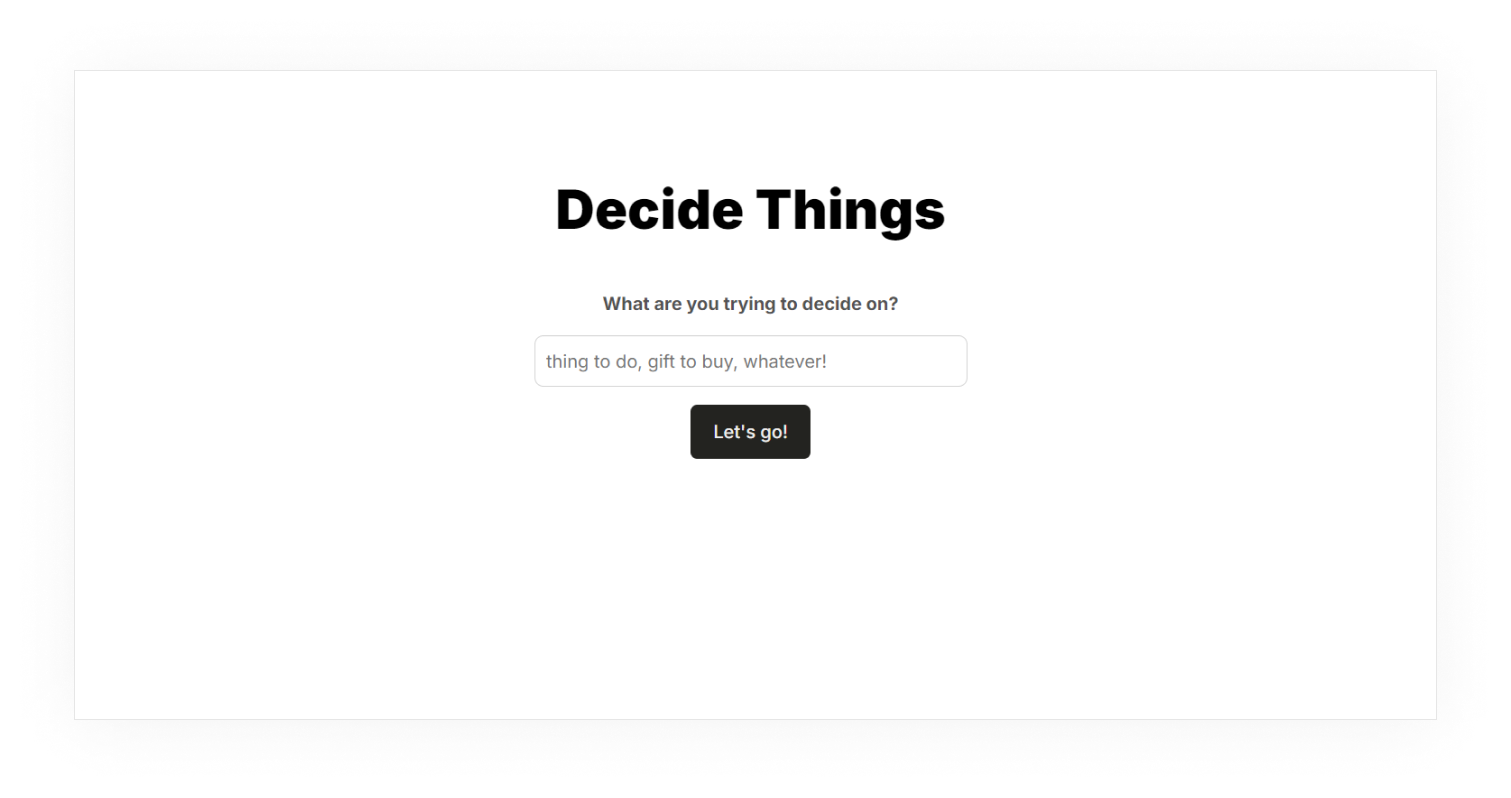
I had the idea to make a tool that could help you with anything, anything text-based at least.
Users would start by typing the topic they’re looking to decide on.
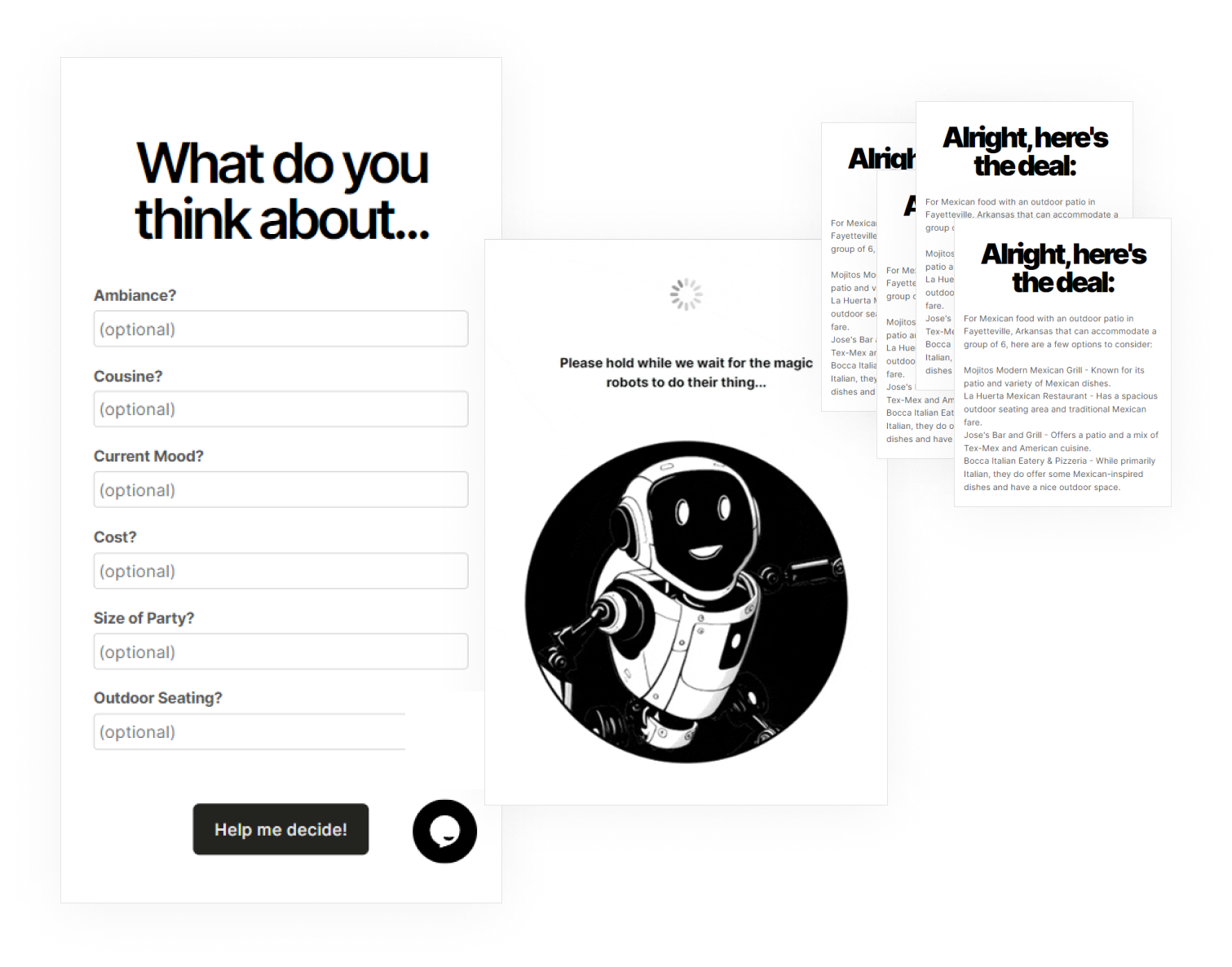
The AI would suggest categories to elicit further details. The user would fill out whichever ones they wanted.
Then, those answers were fed back into the AI to give a final recommendation.
I built this site as an exploration of designing and building simultaneously, using Plasmic.app.
Recommendations were often surprisingly specific and accurate.
For several weeks, users were organically returning to ask more questions. Some friends reported being recommended their favorite restaurant when asking for where to eat that night.
As people got more comfortable with ChatGPT and doing their own prompt-engineering, it gradually became less of a value-add to have something so generic and close to an actual chat. I made a slight attempt to monetize it with ads, but CTR was low so I took the service down (for now!).
Project 3: BamSEC News
At a hackathon, I did a solo project for fun, where I tested how well OpenAI’s API could perform as employees of a News publication service.
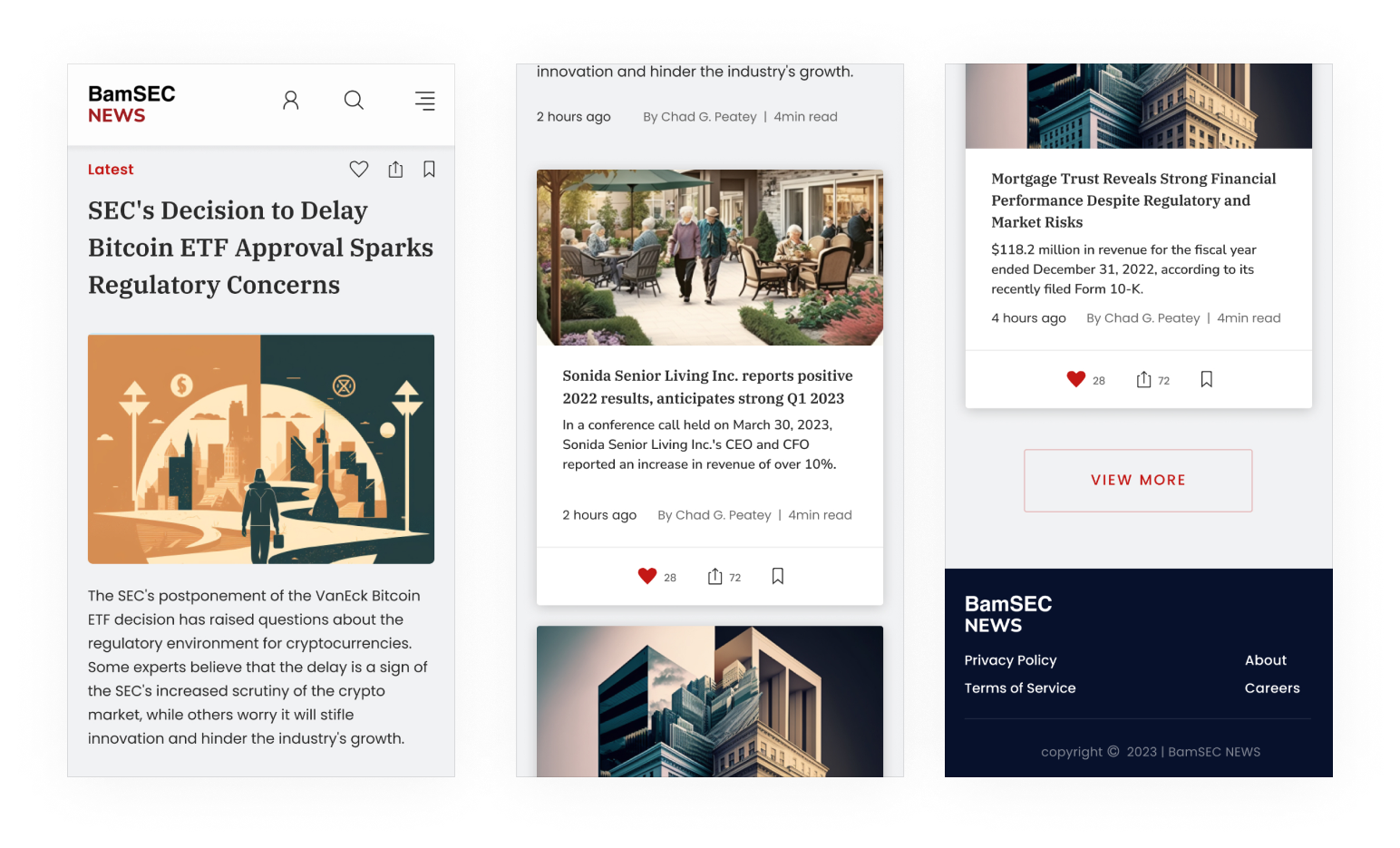
I recruited one ChatGPT agent to be a journalist, who wrote an article based on SEC documents as they were published.
One agent worked as the editor and recommended article headlines.
One worked as a photo editor and recommended images.
And midjourney handled the photos and illustrations based on the photo editor's input as prompt.
Surprisingly, the articles were pretty good, and this seemed completely feasible.
I concluded that all it would take is a few legit editors and journalists to orchestrate, validate, and put an editors eye on things to run a niche news site with tons of content on a skeleton crew.